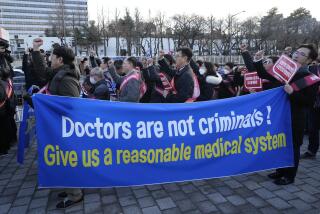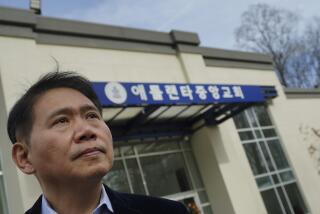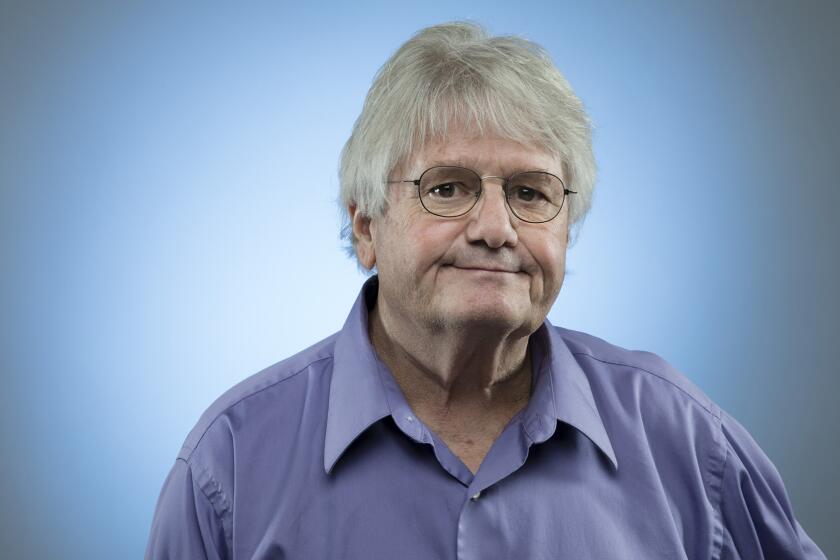Stephen Kim Sou-hwan dies at 86; outspoken S. Korean cardinal
Stephen Kim Sou-hwan, a philosophy student who became South Korea’s first Roman Catholic cardinal and an outspoken critic of authoritarian rule, died Monday. He was 86.
Kim had been suffering from pneumonia for several months and was recently hospitalized, the Yonhap news service reported.
He died at a Seoul hospital, according a statement from the archdiocese of Seoul.
Known for his warm, wry smile, Kim was appointed cardinal in 1969 by Pope Paul VI and became an advocate for democracy in this East Asian nation that is home to 4.5 million Catholics.
A spokesman for South Korean President Lee Myung-bak called Lee’s death a “national loss.”
In 1987, while the nation was mired in anti-government protests, Kim allowed student activists to take refuge in Seoul’s main cathedral.
His efforts helped launch South Korea, which had been ruled by strongmen for more than a generation, on the road to democracy.
Kim was born in the city of Daegu in 1922, one of eight children, and attended high school in Seoul. He studied philosophy at Sophia University in Tokyo in the early 1940s and at Catholic University of Korea from 1947 to 1951.
After serving briefly as a parish priest and as a secretary in the Archdiocese of Daegu, he traveled to Germany to study sociology.
At 46, he became the youngest member of the College of Cardinals.
Kim was an advocate of the poor and took an active part in social and democracy issues, opposing the violent suppression of labor unions.
He called for Japan to take greater responsibility for the damage it caused in its 35-year colonial rule over Korea, which ended in 1945.
During the 1987 demonstrations, as he gave refuge to student activists, he brazenly told the government: “If the police break into the cathedral, I will be in the very front. Behind me, there will be reverends and nuns. After we are wrestled down, there will be students,” according to his website.
Along with serving as archbishop of Seoul for three decades until 1998, Kim led the Diocese of Pyongyang in North Korea from 1975 until 1998, though he was never able to travel to the country, which remains at political odds with South Korea.
Ju-min Park of The Times’ Seoul bureau contributed to this report.
More to Read
Start your day right
Sign up for Essential California for the L.A. Times biggest news, features and recommendations in your inbox six days a week.
You may occasionally receive promotional content from the Los Angeles Times.







